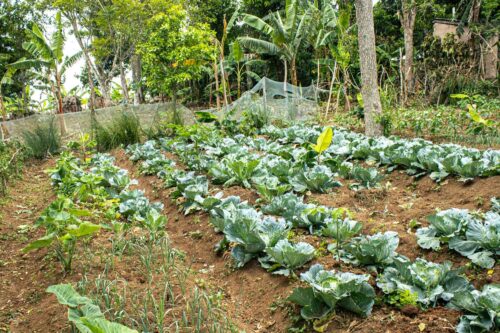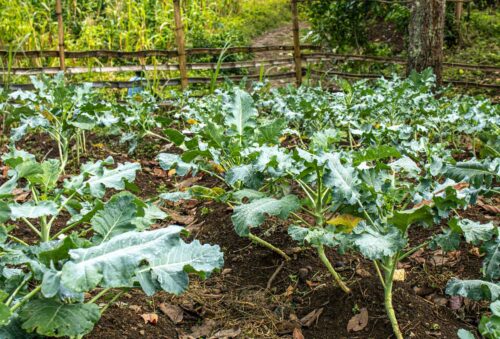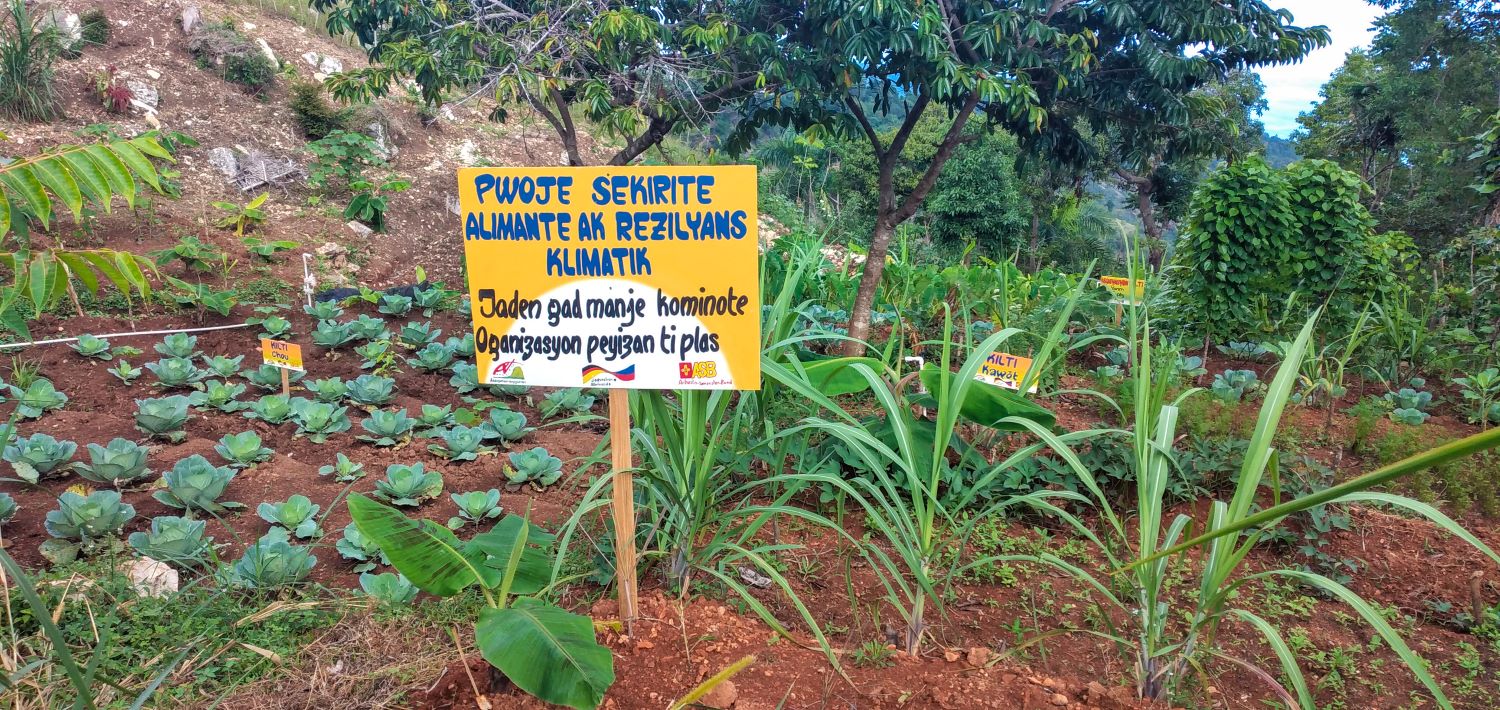Since 2010, the humanitarian organisation Arbeiter-Samariter-Bund Deutschland a.V. (ASB) has been supporting vulnerable populations in Haiti. With the financial support of the Federal Ministry for Economic Cooperation and Development (BMZ), ASB-Haiti has launched a food security project in the municipalities of Petit Goâve and Grand Goâve. This project, called “Food security and resilience through adapted and diversified production of healthy food in school and community gardens and disaster risk management”. This project, implemented by the Vallue Farmers’ Association (APV), introduces an innovative initiative: the Pantry Gardens (JGM) which aims to increase local production in order to improve the food security of families while helping to restore and protect the soil through its ecological aspect.
Why Gardens Pantry in Haiti?
Pantry gardens are an alternative to traditional gardens. They take up less space and use sustainable agroecological techniques that allow for continuous food production and are particularly suited to Haiti’s challenges, such as water scarcity, land degradation and the impacts of climate change. During this project, JGMs were implemented in 10 schools to improve school nutrition, 17 community-based organizations to strengthen the income and service capacity of school children, and at the level of 350 families to improve the nutrition and income of families.
Economic Benefits of JGMs
Pantry gardens bring many economic benefits to local communities. In addition to direct consumption and sharing of harvests among community members, farmers sell some of their produce, generating income that allows them to acquire other ingredients for cooking and meet other family and personal needs. All the schools and associations practicing this approach earned more than 70,000 gourdes during the first years of the project.
Samuel Banzo, Director of the Pithon Community School, says: “This experience allowed the students and teachers to benefit from organic products for the canteen while developing skills in agriculture and gardening. It also allows us to have enough crops to sell and buy supplies for the students.”

Jean-Louis Evens, a member of the Òganizasyon Peyizan Malfini (OPM), shares his experience: “The garden strengthens the economy of our organization and even encourages members who were considering leaving the organization to stay there.”
Janel Rathon, a 17-year-old student at Pithon Community School, adds: “With the pantry garden, I harvest more. The products are used for our food, to share with our neighbours, and sometimes for sale.”
Environmental Protection and Ecological Impact
The approach includes training to teach farmers methods of protecting soils against erosion. These techniques improve productivity while respecting the environment.
he principal of the Pithon Community School also notes: “The students learned how to protect the land, how to fight against soil erosion and how to enrich it. It’s a purely technical job where students learn how to maintain and cultivate a garden from A to Z.”
Community and Educational Impact
Pantry gardens not only improve food security and the environment, they also play a key role in education and social cohesion. These gardens have become powerful educational tools for schools, providing students with hands-on skills in sustainable agriculture while fostering a sense of belonging and community responsibility.
Valsaint Fritz, director of the Notre Dame du Perpétuel Secours community school in Durissy, testifies:

“We started with theoretical training for the students, then we put it into practice by creating a garden. The crops are used in the school canteen, providing healthy food for the students. The garden allows us to grow several varieties in a small area, which is a real revolution compared to traditional methods.”
The impact goes beyond the walls of schools. Families and communities are getting involved, seeing the tangible benefits of these gardens. Jean-Louis Murat, secretary of the Lassource Farmers’ Association (APL), emphasizes:
“Thanks to ASB, most of the members of our association now have their own pantry garden, even those who are not direct beneficiaries of the project, have seen the results and want to be part of it.”
This community involvement strengthens social cohesion, with families sharing their know-how and harvests. The project is thus creating a ripple effect, motivating more and more people to adopt these innovative and sustainable agricultural practices.
The need to expand the pantry garden approach to other communities across the country.
The pantry garden approach is a revolutionary initiative that has a profound impact on food security, the local economy and environmental protection. Thanks to the commitment of ASB and the financial support of the BMZ, this project has improved the living conditions of many Haitian families, while promoting sustainable and environmentally friendly agricultural practices.
The testimonies of the beneficiaries show us that the pantry gardens are not just a temporary solution, but a long-term strategy to fight hunger and poverty. By building local capacity and fostering climate resilience, this approach offers a model for other parts of the country to follow and beyond.
For this approach to continue to thrive and have a greater impact, it is crucial to find additional funding to expand our operations to other parts of the country. “The lack of sufficient funds limits our ability to reach a larger number of farmers all, but through those who have benefited from the support of this project, we are already seeing a positive impact. In addition, those who do not yet have gardens express a strong desire to establish one,” says agronomist James Delzilus, who is working on the project.
Expanding pantry gardens to other communities and schools could transform even more lives, providing the tools and knowledge needed for sustainable and productive agriculture.






